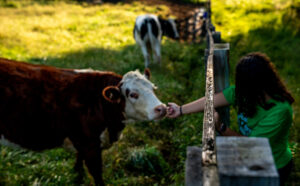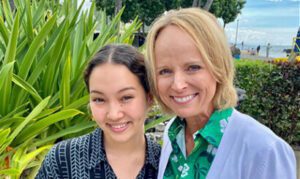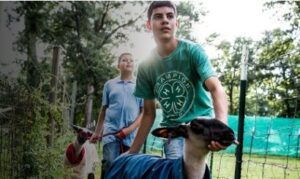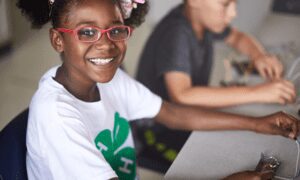The other day I was teaching a bullying prevention program at a rural South Georgia school. I showed the group a picture of myself as a 4‑H’er at an event. I looked happy, was holding a tomato, in a green 4‑H sports coat, and smiling. I asked the group to tell me something about the person in the picture, or something they had noticed about me since I had started the class. I got things like, “You like tomatoes,” others told me, “You look happy.” Both of these things were correct, at least for that moment. I did look happy, and at that event I was, but what about every other time? I explained to these middle schoolers that just by looking at this picture, and talking to me they could not tell that I had been bullied, that I cried myself to sleep many times, that I planned suicide, that my father left my family when I was young, or that I felt unloved.
Today many of our nation’s youth are experiencing these same adversities. They may not all have a parent who left, they may not all contemplate suicide, but many are experiencing harsh words and actions by their peers in our schools, communities, and gatherings. I was told that I was aggravating, ugly, fat, stupid, different, gay, and many other names. Unfortunately, the more you are told these things the more you believe them.
I would not be here today had it not been for a caring family that recognized something was wrong, and for my involvement in the 4‑H program. At 4‑H I felt loved. I knew that there were 4‑H Agents and friends who liked me, wanted me to succeed, and be the best I could be. 4‑H taught me to be strong, and then to go help others; to help any other person who had experienced what I had. Most importantly, 4‑H taught me that normal does not exist. There is no such thing as a normal family, person, school, community, or anything. We are all different, and we bring different skills to the table – 4‑H taught me how to be me.
I was grateful to have a loving family, and a loving 4‑H family who supported me every step along the way, but so many do not have these support systems. It is our duty as 4‑H members, as 4‑H educators, and as 4‑H alumni to bring to these youth the message of self-worth, to bring a family of support, to bring ourselves to help others in need. This is not a strange concept for 4‑H; this is what it’s been doing for 114 years. Together we can save a child, win a battle, and make a difference.
















